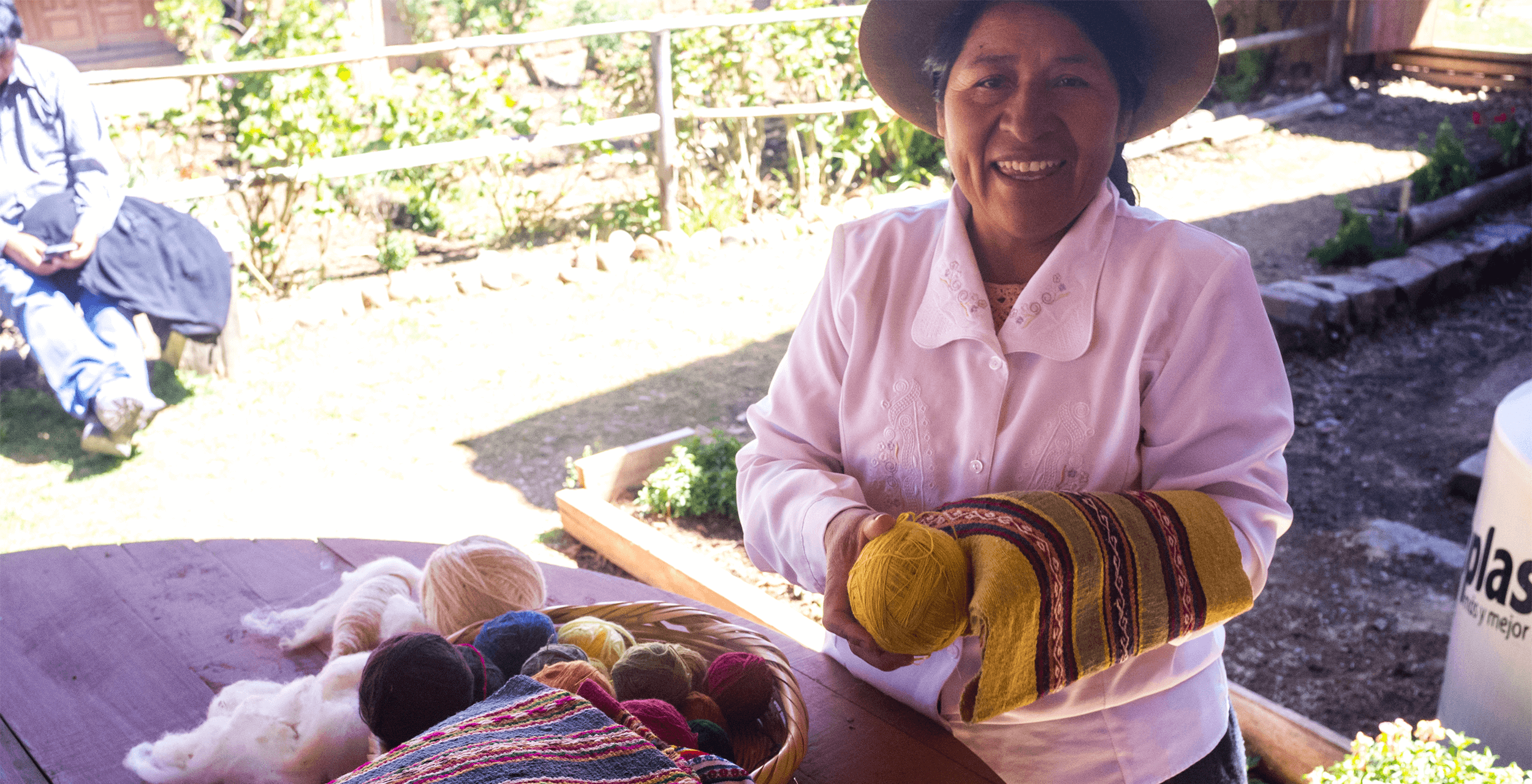Building cultural bridges between rural Peru and the world
Story

Before the pandemic, the women entrepreneurs in Chacan welcomed tourists into their homes so they could experience the rural Andean way of life.
Leocadia is one such “campesina”. She participated in learning opportunities available through Cuso International and successfully launched her own ecotourism business. When guests stayed at her home, they would join her in her daily activities, learn how to make traditional medicines from local plants, and try their hand at traditional weaving techniques.
Through her business, Leocadia had access to her own income. And ecotourism allowed her to maintain her culture and traditions. But it’s not only about what she shared with her guests.
“Before ecotourism we lived only from our land. We worked with our husbands in the fields and cooked. Now when there are travelers we also live from tourism,” says Leocadia. “They visit us from other countries, and they learn about our way of life, and we learn about theirs. We talk and exchange points of view at the table. They become my family.”
Canadian volunteers provided technical assistance in the area of sustainable tourism. The women gained knowledge and skills in marketing, collecting payments and financial management, and constructing tours that focus on topics like traditional gastronomy and weaving.
Now, due to COVID-19, Leocadia’s tourism services have been put on hold, but that hasn’t stopped her. Leocadia is now receiving training from Cuso International on sanitation and safe drinking water practices, so when tourists are ready to come back, they’ll be greeted by even safer conditions than before the pandemic.
These Indigenous women are just a small number of the tens of thousands of underserved women and girls around the world that need support. You can help more women like Leocadia by making a donation today